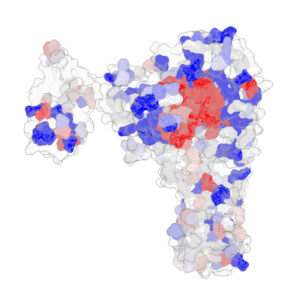A rare and debilitating group of autoinflammatory diseases is closer to a cure thanks to a world first genetic analysis project at Hudson Institute.
Cryopyrin-associated periodic syndromes (CAPS) are inherited autoinflammatory conditions characterised by recurrent bouts of systemic inflammation related to inappropriate activation of the innate immune system.
These diseases are known to be linked to genetic changes in an immune senser named NLRP3 and now, for the first time, researchers have analysed hundreds of mutations to pinpoint the causes.
Their work has been published in the journal Nature Immunology.
First author, Dr Shouya Feng said this research is the world-first functional screening of all known NLRP3 variants: “This extensive analysis provides the first systematic approach to understanding how specific mutations lead to inflammasome activation.”
First ever CAPS genetic analysis
Her supervisor, Professor Seth Masters, said most of these gene variants have never been studied before.
“Our analysis shows that some people got diagnosed with this condition incorrectly, and there are quite a number of people out there whose disease didn’t look exactly like CAPS, but it turns out our test shows that this is what they have, and for the first time they can get access to a drug that treats the condition, insurance coverage, family planning and certainty about why they are ill,” Prof Masters said.
Dr Feng and the team studied more than 500 genetic variants of NLRP3 to see how they affect inflammasome activation and response to inhibitors.
“Our findings reveal different ways these mutations trigger inflammation, identify variants resistant to existing drugs, and provide new insights for diagnosing and treating patients with CAPS. This work could help match patients to the right treatments and improve future drug development,” she said.
Dr Feng believes that improving the classification of pathogenic and benign NLRP3 variants will ensure that patients can receive the right care.
“Additionally, as new NLRP3-targeting drugs like MCC950-derived compounds are being developed, our findings provide valuable insights to improve drug design and expand treatment options for those with resistant mutations,” she said.









